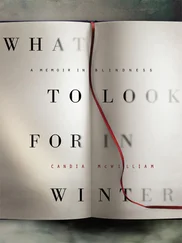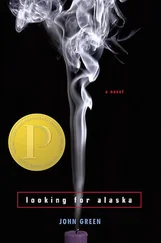Edeet Ravel - Look for Me
Здесь есть возможность читать онлайн «Edeet Ravel - Look for Me» весь текст электронной книги совершенно бесплатно (целиком полную версию без сокращений). В некоторых случаях можно слушать аудио, скачать через торрент в формате fb2 и присутствует краткое содержание. Жанр: Старинная литература, на английском языке. Описание произведения, (предисловие) а так же отзывы посетителей доступны на портале библиотеки ЛибКат.
- Название:Look for Me
- Автор:
- Жанр:
- Год:неизвестен
- ISBN:нет данных
- Рейтинг книги:5 / 5. Голосов: 1
-
Избранное:Добавить в избранное
- Отзывы:
-
Ваша оценка:
- 100
- 1
- 2
- 3
- 4
- 5
Look for Me: краткое содержание, описание и аннотация
Предлагаем к чтению аннотацию, описание, краткое содержание или предисловие (зависит от того, что написал сам автор книги «Look for Me»). Если вы не нашли необходимую информацию о книге — напишите в комментариях, мы постараемся отыскать её.
Look for Me — читать онлайн бесплатно полную книгу (весь текст) целиком
Ниже представлен текст книги, разбитый по страницам. Система сохранения места последней прочитанной страницы, позволяет с удобством читать онлайн бесплатно книгу «Look for Me», без необходимости каждый раз заново искать на чём Вы остановились. Поставьте закладку, и сможете в любой момент перейти на страницу, на которой закончили чтение.
Интервал:
Закладка:
The organizers dropped onions on the ground, smashed them open with their shoes, and handed out the pieces, in anticipation of tear gas: onions helped a lit le if you held them to your nose. We slid the shiny white crescents into our pockets. Then the organizers instructed us to sit on the ground while they negotiated with the army. We placed our hopeful signs against the wal , where they acquired a life of their own, like sentries from toyland.
At rst the streets were empty because of the curfew, though we saw Palestinians watching us from their balconies, women and children mostly, women and teenage girls, watching from their balconies and roofs, happy to see us but stil unsure, waiting for events to unfold. Then al at once the men began streaming out of the houses and their children fol owed them. The women stayed indoors for the most part, or stood in doorways, but the men and children came out: boys of al ages and very young girls wearing pret y dresses: purple velvet or bright cot on prints. The men and boys had short trimmed hair and tanned arms, and wore light-colored jeans or white cot on slacks with polo shirts that were open at the col ar, eight or nine but ons running down from the col ar, the smal lapels folded to the sides. The shirts were striped or else solid colors with American cartoon figures and meaningless messages in English. Al their clothes were careful y laundered and ironed; I’d never seen a Palestinian in grimy or stained clothing, unless they were working and wearing their work overal s.
Everyone was chat ing and laughing, the children and the men. They greeted us happily and took the signs from our hands and waved them in the air. The children posed for me, smiling broadly into the camera. Their smiles made me dizzy, as if I were walking on a narrow, tilting ledge, or in space. So easy, to get along. And instead this endless ghting, hundreds upon hundreds of dead and mutilated bodies, year after year.
Final y the army al owed us to proceed a lit le further in the direction of Mejwan. Three months ago a peace worker we al knew, Idris, had run out of his house in Mejwan to look for his child. He was shot rst in the leg from a distance and then at close range in the back by a lone red-haired soldier. I wanted to take a few photos of Idris and his family, and I hoped we’d be al owed into Mejwan. He was paralyzed now from the waist down.
We walked with the Palestinians. Then another barricade was set up, and this time the army was not going to move. We stood on one side, they stood on the other. A soldier and a Palestinian man got into an argument. I couldn’t hear what they were saying, only a few isolated words: no right, stop, move back, freedom. The man’s rage grew, his frustration grew, and he kicked the soldier with his soft, dusty shoe, a sad black shoe, and the soldier pushed him with the but of his ri e so that he fel backward. A child, possibly his son, picked up a stone and threw it at the soldier. A soldier who a few days earlier may have been someone I had photographed on the beach, stretched out on a towel, asleep, and whose trembling lips may have fil ed me with pity.
Panic and disorder tend to break out without warning, and the rst moment is always terrifying, because we react instinctively with fear when we see or hear a large crowd running. Everyone was trying to escape the tear gas. Across the street a man carrying a young woman in his arms was looking frantical y for a car: the woman was having some sort of seizure. I took a photo of the two of them, even though I couldn’t see very wel because my eyes were burning. I needed to nd shelter as wel . I was standing near a half-built warehouse, and I saw that people were running up a wooden ramp that led to the upper story of the building. I ran up the ramp with them, hoping it wasn’t a mistake, hoping it wouldn’t be worse up there: what if we were trapped inside with the tear gas? Luckily, there were two open sides on the upper story, one facing the sidewalk and the other facing the army barricade. There were also two window openings in back. Every few seconds I took a break from taking photographs to hold an onion crescent to my nose; it seemed to help. A boy in his mother’s arms was shrieking with terror. He wore shorts covered with tiny yel ow and red and navy blue hearts. His smal hand lay on his mother’s black hair, which fel in waves against her white blouse. The wal s were made of rough cement blocks, and here too there were bits of wire coming out of the cement; a strand of the mother’s hair was caught on one of them.
A stun grenade exploded and there was more crying, not only the boy now but also two other children, a girl of about seven and her older sister. I huddled with them in the corner. I knew the stun grenades weren’t real grenades, but the sound was frightening al the same and it made you cower. The Palestinians were more afraid than I was, because they weren’t entirely certain the army would hold back even if we were there, and they feared for their lives.
From below a soldier began to shout. He pointed his weapon at us and ordered us to come down. I saw the soldier’s face. He was young and he was the sort who didn’t want to be there, I could tel . Some soldiers were keen, they liked what they were doing and believed in it.
Others wanted to be with their girlfriend on the beach, or surfing with a friend.
And then, as if out of nowhere, a demonstrator emerged from the darkness, walked over to the edge of the warehouse, to the side where there was no wal , where down below the soldier was pointing his submachine gun at us. I was sickened by the weapon, a weapon I had once held myself, but which was now pointed at me. The demonstrator looked down at the soldier near the barricade and shouted, Enough, already, enough! Five stun grenades had exploded by then, one after the other, and several more tear gas canisters. And now the soldier was threatening us.
The words of the demonstrator, there in the dim crowded shelter, amidst the crying and fear, brushed against me like peacock feathers, the kind I used to play with when I was a child, and I wanted to shut my eyes and enjoy the sensation. Even after he’d spoken I felt the words moving softly around me, and I almost forgot to photograph him. I focused my lens: red basebal cap on a short black afro, white T-shirt, jeans, running shoes. His sign in one hand, his onion in the other. Enough, already, enough—
Wel then, come down, the soldier shouted back. It unnerved the soldier, that there were people up there; he felt exposed, afraid. He might have shot at us to get us to come down to the street, where the air was sharp and heavy with tear gas, but he couldn’t risk hit ing someone from his own side, and in this way we protected the Palestinians with our bodies.
The demonstrator turned to me and said, “Let’s go.” We made our way down the ramp and out onto the sidewalk, and the others fol owed us. The air stung my throat and I pressed the onion to my nose again. The street was deserted; everyone had run for shelter.
“Are you al right?” he asked me.
“Yes, are you?”
“Fucking assholes …Your eyes are red.”

“Fucking assholes …Your eyes are red.”
“They don’t bother me.”
“I’ve seen you before,” he said. “You always come, I’ve seen you many times.”
“I haven’t seen you.”
“You’re too busy taking photographs.”
I smiled, and when I smiled he said, “You’re in bad shape.”
I didn’t answer. I stared past him. People were slowly coming out of their hiding places, tired and upset.
“You wrote me a let er when I was in jail,” he said.
“Who are you?” I asked.
“Rafi Atias. And you’re Dana Hil man.”
Читать дальшеИнтервал:
Закладка:
Похожие книги на «Look for Me»
Представляем Вашему вниманию похожие книги на «Look for Me» списком для выбора. Мы отобрали схожую по названию и смыслу литературу в надежде предоставить читателям больше вариантов отыскать новые, интересные, ещё непрочитанные произведения.
Обсуждение, отзывы о книге «Look for Me» и просто собственные мнения читателей. Оставьте ваши комментарии, напишите, что Вы думаете о произведении, его смысле или главных героях. Укажите что конкретно понравилось, а что нет, и почему Вы так считаете.












